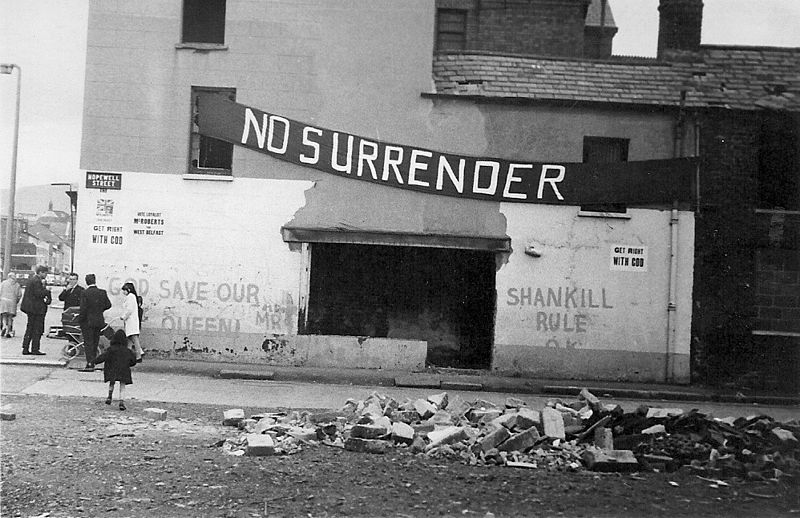By Brian Dooley
When Hong Kong’s unrest slides into 2020, we’ll start measuring the protests in years rather than months.
Comparisons with the long conflict of the 1968 to 1998 Northern Ireland Troubles are inevitable. In both cases, problems arose when a big power worked out a deal granting semi-autonomy to a smaller government next door.

Both Hong Kong and Northern Ireland had peaceful rights movements – often led by students – demanding a fair voting system. Both police forces brutally overreacted, teargassing and shooting protestors. Civil society figures in both places, including human rights lawyers, were attacked.
Both protest movements successfully sought help from the United States: last month the US passed legislation penalising those deemed responsible for suppressing freedoms in Hong Kong, while the Clinton administration helped broker a settlement in Northern Ireland in the 1990s.
In both cases, the relevant big power considered sending in its troops to try and restore order.
In 1969, after a year of unrest in Northern Ireland, that’s what the British government did. It sent its military to try and end the demonstrations but, instead of restoring order, its soldiers only inflamed tensions in the following months.
One afternoon on January 1972 British soldiers shot 24 unarmed civil rights protestors in the space of 10 minutes in Derry, killing 14. The Bloody Sunday killings convinced many that peaceful protest was useless and that they should join the Irish Republican Army (IRA) or one of the other armed groups fighting British rule.

In 1983, the year before the United Kingdom and China signed the treaty on Hong Kong’s future, London was so desperate to solve its Irish problems that officials even discussed transplanting Hong Kong’s entire population to Northern Ireland in the hope that the massive relocation of millions of people would somehow stop the violence.
But the conflict dragged on for another 15 years, and by the end of three decades of violence, more than 3,600 people had been killed. Since 1998, a fragile peace has held, although that’s now threatened by a British withdrawal from the European Union.
Some experts suggest that Boris Johnson’s latest Brexit plan will effectively turn Northern Ireland into Britain’s Hong Kong, with another variation on the One Country, Two Systems model.
But Northern Ireland isn’t Hong Kong. Irish nationalists who fought Britain drew on a tradition of 700 years of resisting colonial rule, and the IRA had access to large quantities of guns and explosives. There was also a strong sectarian element to the conflict, with Northern Ireland’s Protestant majority generally wanting to stay as part of the United Kingdom, and the large Catholic minority preferring to reunite with the south of Ireland.
But a protracted conflict in Hong Kong is not impossible. Violent insurrection can be carried a long way by just anger and petrol, especially by people who don’t think they have much left to lose.

And if anyone’s listening in the Hong Kong or Beijing governments, there are three basic lessons they can learn from Britain’s mistakes in Northern Ireland.
First, sending in an army to suppress protests won’t necessarily work. It risks fuelling a long guerrilla war of attrition, and a deepening cycle of attacks and revenge attacks by protestors and security forces.
Second, you might as well cut a political deal now as later. The British government agreed in 1998 to more or less what protesters had been demanded in 1968 – a fair voting system, a radical overhaul of the police, and an end to state violence. Decades of violence could have been avoided.
Third, tell the truth about what’s happened. Britain’s official inquiry into Bloody Sunday was such a whitewash of its military’s culpability it had to be redone decades later. A full, independent, commission of inquiry that has public trust is vital. Setting that up could happen now.
Hong Kong can avoid the tragedy of Northern Ireland, but if months and years of upheaval aren’t to turn into decades its government needs to act fast to stop the escalation and find a political solution.
Brian Dooley is the author of Black and Green: The Fight for Civil Rights in Northern Ireland and Black America, and a senior advisor at Human Rights First, an international human rights organisation.
